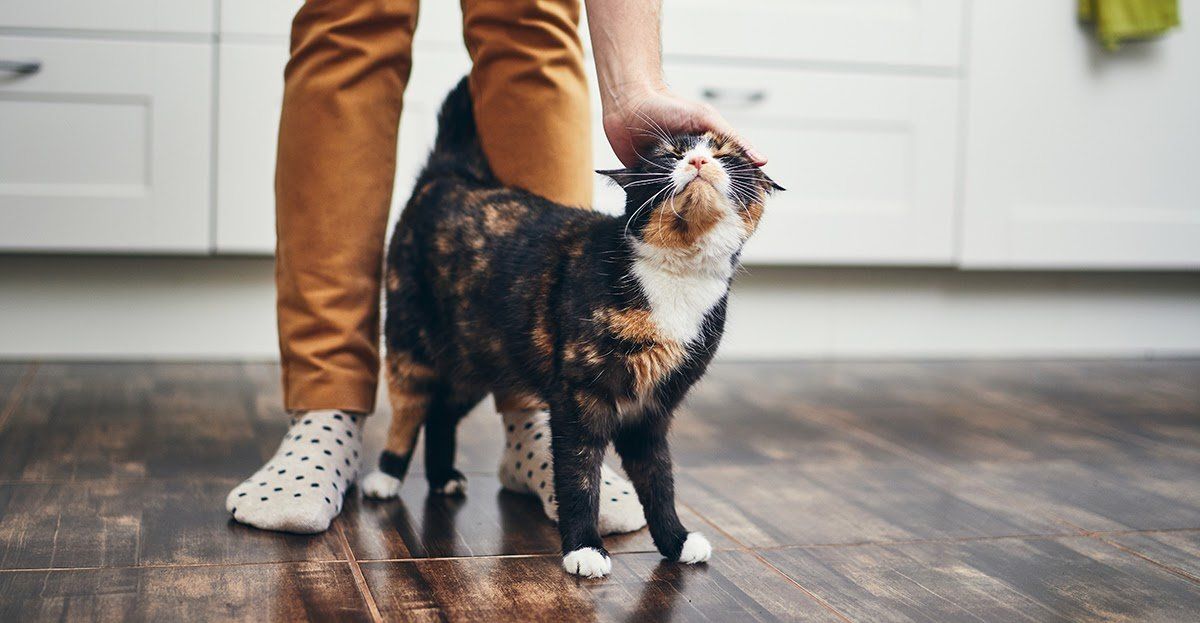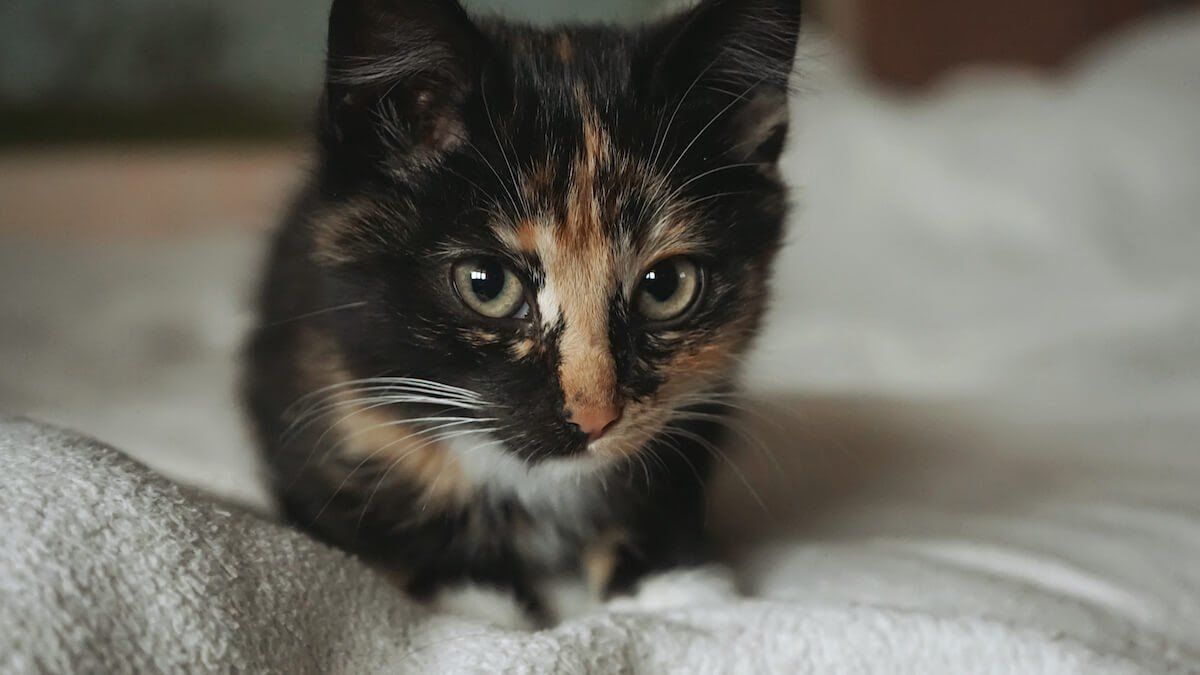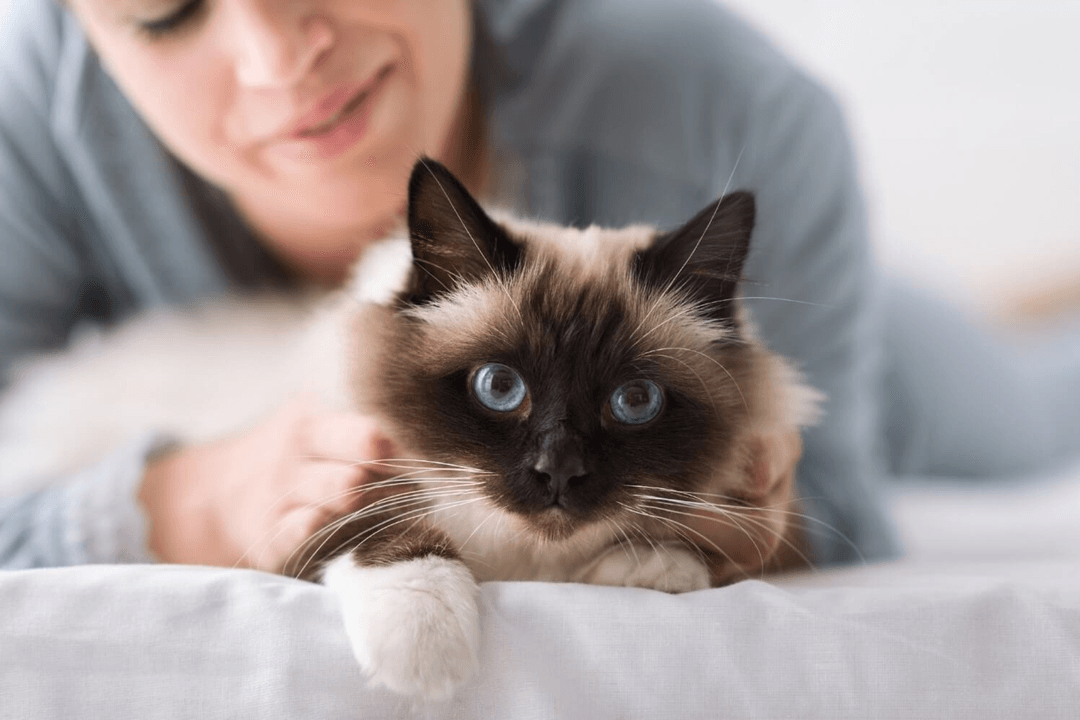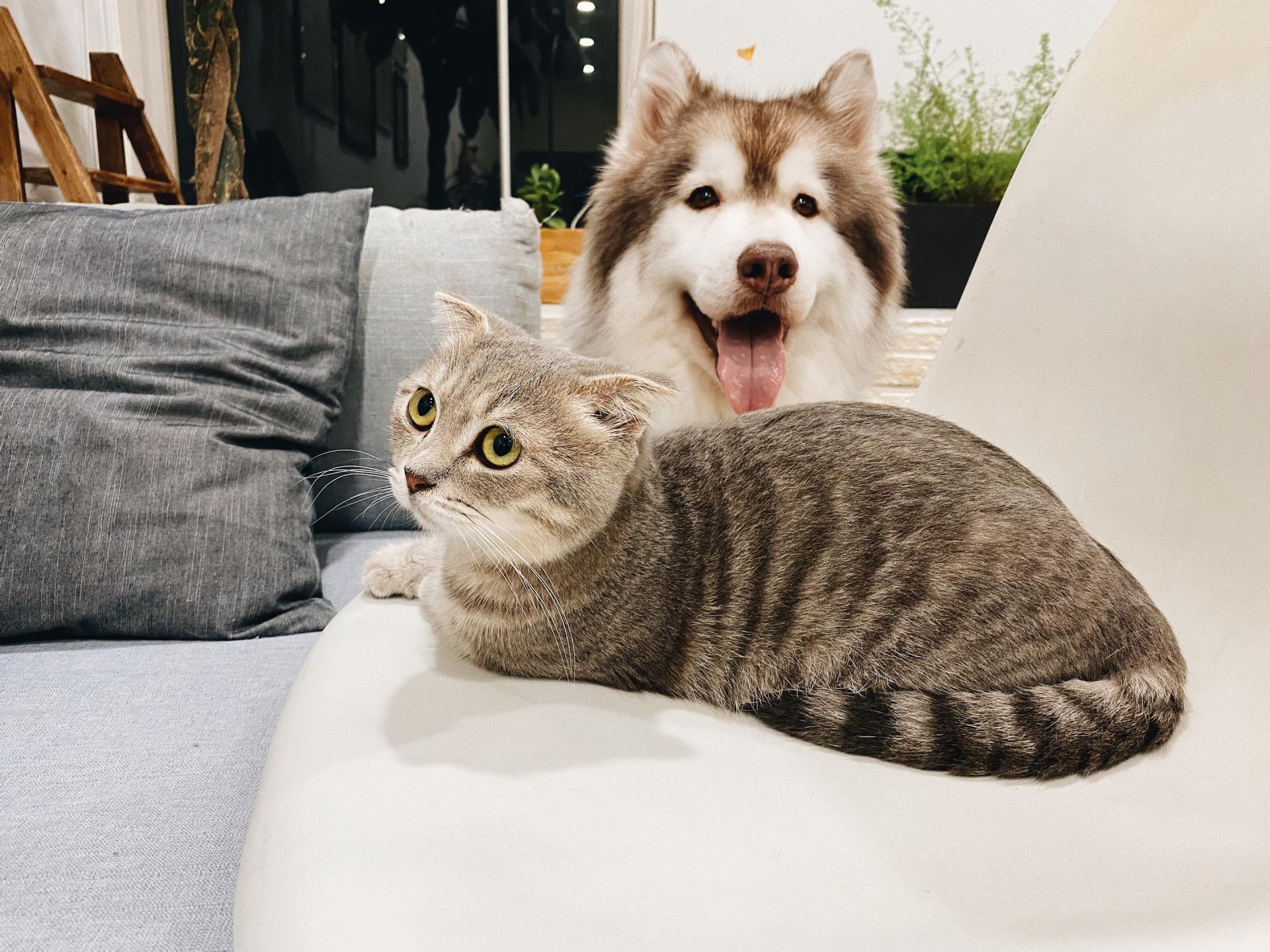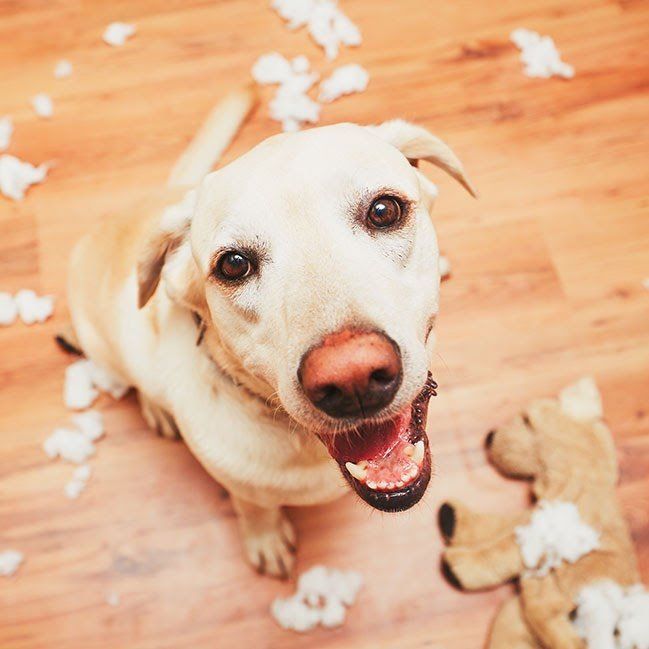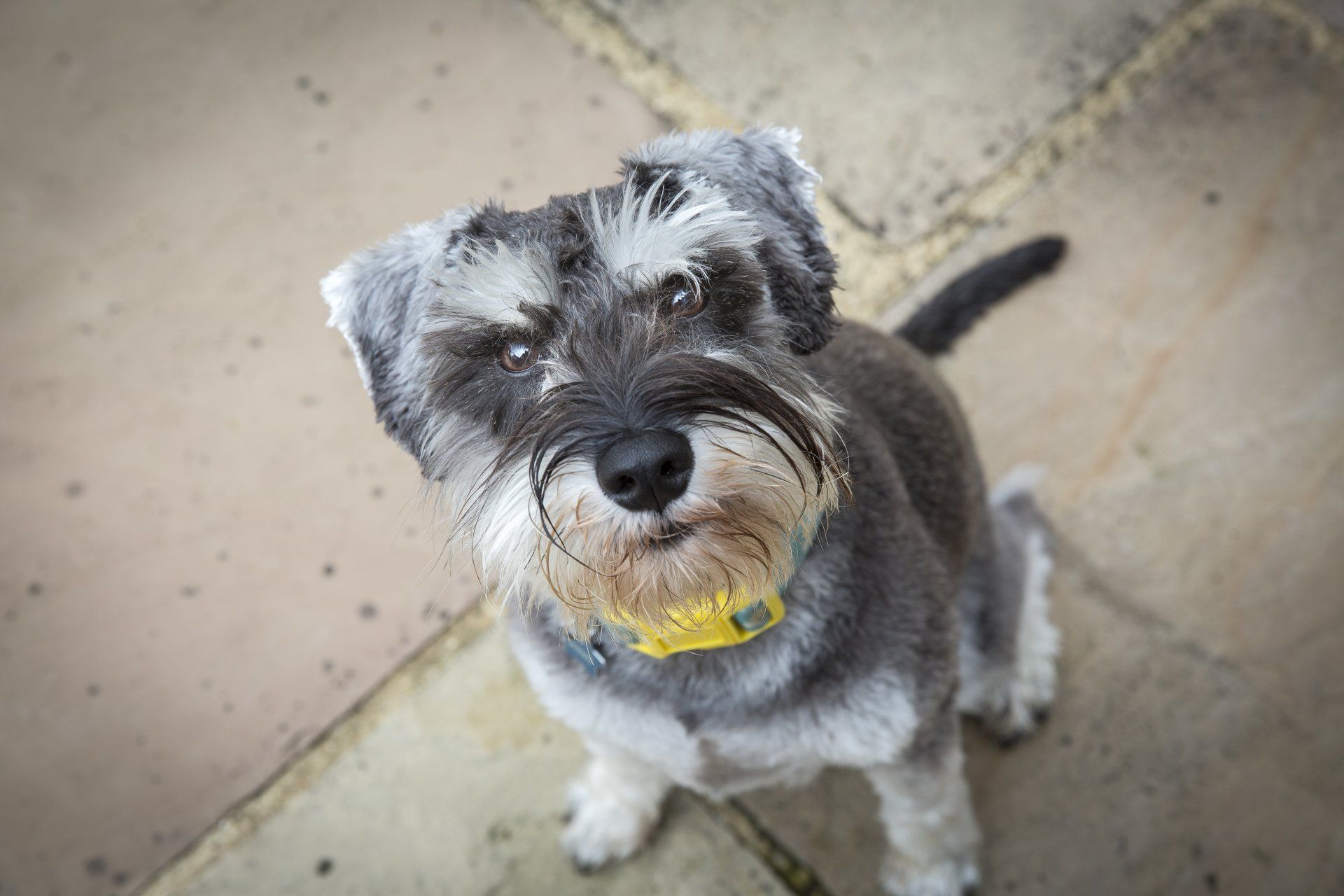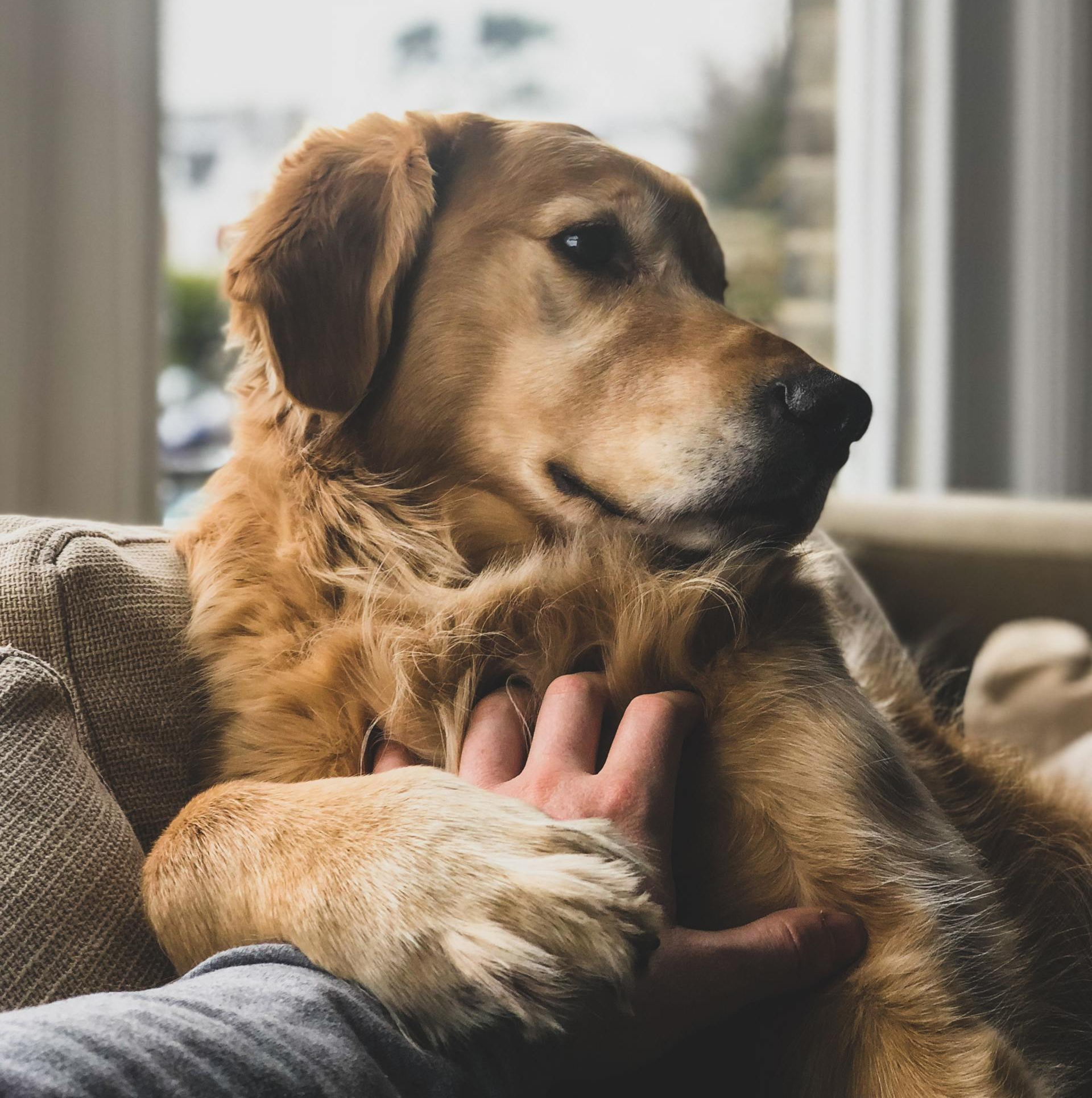Does My Cat Have Separation Anxiety?
4 February 2021
Is your kitty being a bit of a socialite? Our furry pals all have their own personalities and if your cat is a very sociable creature then they might miss you when you’re out!
We all love a kitty with a friendly personality but if it becomes clear that they are experiencing stress when you leave home then your cat could be experiencing a fear of being left alone. Depending on your kitty’s personality they might be ok with a bit of alone time, but struggle with longer periods apart or they might get nervous every time you leave. There are a few stress-related behaviours that can manifest if your cuddly kitty has difficulty being without you.
3 SIGNS YOUR KITTY IS EXPERIENCING SEPARATION ANXIETY
1. Does Your Kitty Urinate Outside The Litter Box?
While stress from being alone isn't the only cause of peeing outside the litter box, (and you should always get your kitty checked out by the vet if they are doing this regularly), there are some key signs to watch out for.
Have you noticed that your cat is often urinating on items that smell a lot like you, such as your clothing or bedding? If so, this could be a sign that your cat has separation-related issues and this is a symptom of their stress.
2. Vocal Expression When You’re Getting Ready To Leave
You may notice that your kitty’s stress starts when he picks up your departure cues, such as putting on your shoes or packing a suitcase. Your pet may show stress by vocalising more than usual or keeping very close by you - or even by withdrawing completely and hiding.
Also, if your pawsome pal appears worried when you arrive home or there is evidence of unwanted behaviours (such as peeing, scratching or overgrooming) that have only occurred while you were away, this may suggest that they’re stressed and anxious when you are not at home.
3. Is Your Kitty Showing Other Destructive Behaviours?
If your kitty is acting a bit out of sorts and there’s a change in their appetite (gain or loss), illness or throwing up, scratching or excessive self-grooming, this is likely a sign that your kitty is stressed. As always, you should visit your vet to check that your kitty doesn’t have any medical conditions, and when this is ruled out, consider how you can help them feel calmer when left at home alone. After all, it’s inevitable that you will have to leave the house sometimes and helping your kitty feel comfortable on their own is key to their happiness, confidence, and reducing destructive behaviours.
HOW TO HELP YOUR KITTY FEEL SECURE WHEN YOU’RE OUT
Consider How To Keep Your Kitty Occupied
While your cat may find it uncomfortable when you’re not at home, it’s also likely that they’re feeling stressed due to a lack of stimulation while you’re out. Frequent social interaction such as stroking and play sessions are extremely important as they help you bond with your furry friend and build trust. This also helps prevent your kitty from being bored or anxious so these interactions can reduce kitty stress.
If you’re out all day then consider if you have a friend, cat sitter or neighbour who can call in and check on your kitty for playtime or to change your kitty’s toys. You could also consider leaving the radio on, or playing some calming classical music to help your kitty feel less alone.
Make sure that you leave your kitty with plenty of toys to hold their attention - food puzzles with high-value treats inside are a great way to keep your cat occupied for hours as well as helping them to exercise. You could even create a little food hunt for your kitty, hiding small pieces of food around the house, such as on perches, to encourage your cat to be active while you’re out.
Start Off With Small Absences and Build These Up
It’s important to prepare your cat for their alone time slowly; start with small absences while you’re still at home, by leaving the room and coming back - then build this up slowly. Cats are very fond of routine so quick changes can make it much harder for them to adjust. If you have a long holiday or absence planned then try and set aside some time to help your cat adjust as easily as possible, getting them gradually used to alone time.
Keep Arrivals And Departures Low Key
When you are leaving or arriving home, try not to make a fuss of your cat. Obviously, you’ll miss them but making it into a big deal can confuse your kitty and make them more anxious for your departure next time!
Try to keep coming and going non-emotional, quiet and short - just a wave or brief acknowledgment is all that is needed. When you return, only greet your cat once they stop seeking attention (for example when the vocalisation stops) and only give them some attention when they are calm.
Create A Calm Spot For Your Kitty
Make sure that your kitty has somewhere they can go to feel safe; incorporate a kitty relaxation area in your home for them to go and sleep or perch and watch what’s going on. Cats enjoy a high vantage point, so consider adding perches, cat trees, and cat-friendly shelving to give them the best environment. Some cats also like to hide away occasionally as this is comforting, so provide them with a safe, relaxing area such as a cardboard box with blankets inside.
When you’re going out, also ensure that your cat has plenty of water (cats will often prefer this if it is flowing water, like a cat drinking fountain), as well as a food bowl, litter box and scratching post. All of these should be kept in different locations and there should be at least one resource per cat in your home.
KEEPING YOUR KITTY CALM WILL HELP THEIR SEPARATION ANXIETY
If you think that your kitty is experiencing stress when you leave then don’t panic; you can help them by providing enough stimulation while you’re out, creating a stress-free space for them and ensuring they have everything they need.
You can also consider using a FELIWAY OPTIMUM diffuser to help reduce any stress or worry that your kitty might be experiencing. This provides a calming, happy environment which helps your kitty to cope with any changes or disruptions to their normal routine or environment, such as longer absences.
Use the diffuser in the room where your cat is most likely to spend their time. If you’re using this before a vacation, use it one week before your holiday to provide a calm environment for your departure and during your leave. Use continually if you’re out every day for work, and this will help your kitty feel more secure and reassured.

Tasha Cole, Blue Cross Animal Behaviour Coordinator and Ryan Neile, Blue Cross Head of Behaviour Service Operations kindly developed this blog to help raise awareness and give advice to pet owners for Pet Anxiety Month. Pet Anxiety Month is managed by Ceva Animal Health Ltd, manufactures of ADAPTIL® and FELIWAY®. Ceva Animal Health Ltd donate ADAPTIL® Calm on-the-go Collars to Blue Cross Rehoming Centres, helping to provide pheromone support for dogs in kennels. Why is raising awareness about stress/anxiety in pets valuable? Tasha (Blue Cross): It’s really important for us to help make people aware, how animals show they are stressed or anxious so they can help better support their pets. Sometimes a behaviour an animal exhibits when stressed or worried can be seen as misbehaving or being problematic when actually it is a result of the stress they are under. If people can recognise the signs then they may be able to help the animal by reducing the stressors, and therefore improve their behaviour, which is beneficial for everyone involved. What anxieties do you commonly see in cats and dogs and in what situations at Blue Cross? Tasha (Blue Cross): In a kennel or cattery environment we can see a variety of stress behaviours. With cats this could be hiding away, retreating into themselves, not able to interact with us, reacting negatively towards other cats they see, inappropriate toileting, defensive or aggressive behaviour. With dogs we sometimes see barking and howling, chewing items or ripping up bedding, hiding away, alarm barking towards people or dogs, refusing to walk a certain direction or go to a certain area. How does Blue Cross help pets with anxieties? Tasha (Blue Cross): We look at the individual animal needs and try to provide the best environment for them. For cats this may mean using a quieter environment or area away from other cats. We use pheromone products to help reduce stress and look at making the environment feel safe, so providing plenty of hiding areas on different levels for them where they can retreat to if they feel anxious. With dogs we make the kennel as comfy as possible with toys and chews to interact with. We use pheromone collars to help reduce stress, and we also provide them with opportunities to express natural behaviour, channelling their needs towards appropriate play and training. We also give lots of one on one time and quiet time with us in the offices whilst we are working. We also use our amazing team of foster homes, which is invaluable for animals that find kennels stressful. Ryan (Blue Cross): As well as being mindful not to place our animals in situations where they might become stressed or anxious, we also use training to build their confidence, and help them to overcome the challenges that are causing them to be fearful. We use exciting toys and really tasty food and reward them for learning new things. The skills they learn can help them to feel more confident, and, if approached in the right way, can become part of a behaviour modification plan used to reduce fears and anxieties. Each animal is a unique individual, so our plans will be tailored to suit them. Please share a cat and/or dog ‘pet anxiety’ success story at Blue Cross. Tasha (Blue Cross): Snuggles came to us looking for a new home, she had previously been kept as an indoor cat and was finding this stressful and kept trying to escape out of the house. She found the cattery frightening and initially hid away hissing and growling if anyone came close. We kept her surrounding environment as quiet as possible and moved the other cats away from her. We had a small team of people spending time with her, without putting pressure on to touch her, we just sat quietly and chatted to her and left tasty treats, so her days became more predictable and therefore less scary. It took several weeks but this helped her to trust us and eventually she became confident enough to come out to eat the treats and then she started interacting with us through play. She then began rubbing against us and asking for touch. It was important that we read Snuggles’ body language well and let her come to us when she was ready, rather than trying to force her to interact with us as it's likely this would have caused her great stress and been detrimental to our relationship with her. Snuggles found a fantastic new home where she settled in quickly and developed a great bond with her new owners by following the same approach as we had. She has gone on to have a happy life. Jock, an older West Highland terrier, had a very strong bond with his previous owner. He struggled in kennels, was very nervous and wary of new people. He was also very worried when being handled and yelped when being groomed and sometimes walking. Once we had ruled out any medical or pain issues and given the all clear by the vets, we spent a lot of time sitting in kennels, leaving tasty treats so he got used to one person and very gradually felt comfortable being approached. Due to Jock’s sensitivity to grooming and his coat becoming matted, he had to be sedated and his coat fully clipped off. We were then able to desensitise him to grooming by using a baby brush, with some high value food and regular, short sessions as his hair grew back. We invested lots of time and work in developing a pattern to help introduce him to new people successfully. As his bond and trust grew over the months, we were able to do more and more with him without him yelping or becoming fearful and were able to demonstrate this to a new owner so they could see what he was able to achieve – once he had bonded well. We needed multiple sessions to gradually introduce Jock to a new potential owner. They had to be very sensitive to Jock’s needs, take things very slowly and spend time developing a bond of trust. He is now a much happier and relaxed dog, who is having a wonderful life. What would be your top 3 Blue Cross ‘Pet Anxiety Awareness Month’ tips for cat and dog owners? Tasha (Blue Cross): 1) Be aware of any changes in your pet’s body language, routine or behaviour, make a note of what they are and when they started 2) If you are concerned, discuss these changes with your vet or a qualified behaviourist 3) Be informed about your pet, we have lots of interesting and useful advice on our pet advice pages on our website that you may find helpful, please visit www.bluecross.org.uk/pet-advice for more information. Photos courtesy of Blue Cross.

In this blog Charlotte Carr, Technical Behaviour Manager at Ceva Animal Health Ltd, manufactures of FELIWAY®, has a chat with Daniel Cummings, Behaviour Manager at Cats Protection. They discuss understanding cats behaviour better, recommendations to help owners with anxious cats, environmental requirements and recognising communication signals. Together with discussing how Cats Protection help cats feel comfortable and less stressed. Charlotte (Ceva) : What could be the reason a cat is acting out of character? Daniel (Cats Protection): It could be medical conditions that cause change so first get the cat to a vet to check any underlying medical issues. If there isn’t anything medical, the cat could be acting out of character due to change in the environment. For example trigger factors such as a new cat in the neighbourhood or home environment, building work, new baby or first baby. Specific triggers could be items or sounds such as fireworks / loud noises, that cause the cat to have a fear response, which then causes a change in behaviour. Also, depending on previous experience, how well socialised the cat is and also their genetics (being naturally confident or worried), the cat could have a fear response but recover quicker. Without positive previous experience or socialisation, then a fear response will be shown initially and last a few days after. As long as the trigger persists then the cat will show similar fear responses. Charlotte (Ceva) : Do you find that cat behaviour can be hard to read? Daniel (Cats Protection): My favourite topic! Understanding body language is fundamentally the most important thing we, as pet owners, can do. When comparing cats to dogs, dogs' emotions could be easier to read, but with cats, they still show their emotions but could be harder to read. However, we still should try to understand cat body language and their subtle ways of communicating. Charlotte (Ceva): Are there any signals or signs that owners can look out for in cats that are stressed out? Daniel (Cats Protection): Hissing or swiping is a communication tool cats use, it could be misinterpreted for being confrontational or challenging the owner’s authority. When in fact the cat could be scared and trying to communicate this, to make their owner fully aware of their fear. When cats are scared of the specific situation, or find it challenging, they will show subtle body language cues. Pupil dilation is a good indicator that they are fearful (bear in mind low light impact, which can have a natural impact on pupils). Ears can be a good indicator of stress, up-right, side or back, (Daniel calls this aeroplane ears), are all indicators that the cat is feeling worried. Body posture and position, back legs stretched out and leaning away or back, not walking to you or walking away are all examples of when a cat can be fearful. There are subtle signs owners can look out for, such as not eating, drinking and changed toilet habits. Also, hiding away or sleeping more than normal (cats sleep up to 16 hours a day but this is broken up with activity) or not having restful sleep, the cat having their eyes closed but ears are tuned into other sounds or focused on other things. Slightly more obvious behaviour to show stress is over-grooming, which is a huge welfare issue! Charlotte (Ceva) : Thinking of what you do at Cats Protection and cat welfare importance, how do you make a cat's environment feel as comfortable as possible? Daniel (Cats Protection): For Cats Protection, cat welfare is hugely important. Although some cats may have nowhere else to go or are from a negative situation, being in a rescue centre isn’t an ideal place to be. The view is that their rescue is short term but rescue can be stressful for cats. To make it less stressful, Cats Protection provides... A Hide & Sleep® cat hide or an igloo style bed is provided for the cat to be able to hide away or get higher up if they are stressed. Creating a similar environment for the cat’s natural needs, as a natural prey species. Use FELIWAY®, which can make a difference for their cats. Correct resource placement including making sure the litter tray is appropriately positioned, food and drink are separate and away from the litter tray. At home, cat owners must try to space out resources as much as possible. Creating a more private environment by restricting sight of other cats is achieved by frosted glass / opaque glass as cats are a naturally solitary species. Cats are very scent orientated (humans are very sight orientated). Cats Protection uses a 2 bed system (cloth / textile / towel / material) so there is always one bed in a pen that has a cat's scent, when the other is being washed and a new one is being added, to maintain their scent profile. The importance of making a cat’s environment and routine as predictable as possible to reduce anxiety or fear is really essential to cover during Pet Anxiety Month. An example of Cats Protection doing this is by restricting the number of handlers so the cat then gets familiar to certain people. Ideally restrict actual handling, so cats approach people for attention, otherwise if hiding don’t touch or approach if not needed. Let the cat hide away and give them space so the cat's safe space is kept safe. A tip for owners to help their fearful cats is, restrict strong / high scents in the home such as air freshener, perfumes and strong scented sprays (cats are very sensitive to smell). As we don’t see the world through smell like cats, it's hard for us to understand how aversive it can be. Charlotte (Ceva): What would you suggest to an owner to avoid cat anxiety? Daniel (Cats Protection): Make everything you do predictable, cats thrive on routine. Try to leave your cat alone if you have a fearful cat, try not to force your cat to be your friend. Ignore them and allow them to approach you first. This is the best way to actually become friends with your cat and help them feel more in control. Charlotte (Ceva): What do you recommend for veterinary practices to ensure minimal stress to the cat during a vet visit? Daniel (Cats Protection): Become accredited to be a cat friendly practice. Think cat! Create a separate area for cats (to dogs), provide a table preferably beside each chair to place the cat up high, provide blankets for cat carriers and pre-spray with FELIWAY®. Or provide a clean towel pre-sprayed with FELIWAY® for owners to use. Vets can use FELIWAY® also during the consultation, but use FELIWAY® correctly i.e. use FELIWAY® spray 15 minutes before the animal enters the room and plug in FELIWAY® Diffuser in the waiting area. During consultation get the cat on the vet table only if you need to, and be as efficient as possible (have a need to do - nice to do list). Have a discussion with the owner before the cat comes out. Only do 'need to do' things, you can do 'nice to do' things but only if the cat is ok. Do ‘hands off’ handling and avoid scruffing, now not recommended to vets during training. Charlotte (Ceva): Do you have any suggestions for a new cat owner to make homing as smooth as possible? Daniel (Cats Protection): Be prepared! Whether the cat is from rescue or a breeder, set the home and cat carrier up in advance, not on the way home. Plug in FELIWAY® Diffuser beforehand, we say minimum 24 hours before. Try to be aware that yes, it’s great the cat has a home but the process will be stressful still for the cat from pick-up, going in to the cat carrier, travelling, finally to the home environment. Try to be anti-social for at least 72 hours, avoid having visitors, particularly if you have a fearful cat. Importantly, be calm and get the cat to come into the environment by leaving them alone. Help the cat learn the environment isn’t scary by providing enrichment toys and scatter food around the home even when the owner is not home. So the cat can learn to come out and interact with the environment and engage with toys / balls / feeders. Let the cat become confident with the environment first, then the cat can get confident with people. Cats need to build up confidence! Charlotte (Ceva) : Have you got an example of a positive homing story? Daniel (Cats Protection): Snowball’s story… Snowball showed fearful behaviours in the rescue pen, such as hissing and swiping. The problem was the pen was too small and when a handler went over the threshold, Snowball reacted with a fearful response. We worked with Snowball in foster care and with their new owner to ensure the home environment was right, the number of visitors was restricted and introduced interacting with Snowball from a distance with fishing rod toys and enrichment feeders. Snowball was a completely different cat at home with the right environment, choosing to come up and engage themselves. Because the owner was willing to take on the advice given, take a step back, be patient and consistent, this helped Snowball and had a positive outcome. Charlotte (Ceva): How does Cats Protection help the public understand cats' needs in order to improve welfare? Daniel (Cats Protection): As well as the Cats Protection behaviour conference to be held in September and general online content, we do have a free online training module, which can be found at www.cats.org.uk/online-learning called ‘ Understanding Cats Needs ’. Charlotte (Ceva) : Pet Anxiety Month in March is all about raising awareness, what would be your top 3 tips to help owners? Daniel (Cats Protection): You can't always prepare for what your cat may find fearful but as long as we can appropriately read our cat's body language, we can adjust to all situations accordingly. Cats Protection has a fantastic series of cat behaviour videos available to watch online such as ‘ recognising stress in your cat ’, ‘ cat body language ’ and ‘ Why does my cat..? ’ . Ensure the environment is set up properly and use FELIWAY® to create the most comforting optimum environment possible. Think you know everything there is to know about what makes the purrfect cat-friendly environment? Play the Cats Protection interactive house plan online game and find out if your water bowls, scratching posts and litter trays are all in the most suitable place for your cat in your home. Give the cat a break and give yourself a break! Doing less will be better for the cat and don’t feel like you need to solve everything instantly, behaviour change takes time so don’t stretch yourself too much. Additional cat behaviour information can be found by clicking here .

1. Vet checks. Your Vet can make sure your dog isn’t poorly, in pain, and can advise you on all the parasite preventions, vaccinations, dental care and other health tips to ensure your dog is as fit as can be. Unsurprisingly, a poorly dog will show anxiety and stress! 2. Exercise. It’s not just humans that benefit from plenty of movement and fresh air. Dogs need to stay active as they enjoy sniffing, hunting around and meeting doggy friends. If your dog is anxious about other dogs, find walks and times of day where you can still get out and about. 3. Diet. Ensure that your dog gets good quality food, to maintain their general health, a good foundation for the stresses and strains that life can bring. Choose a diet that your dog enjoys, one that you can afford, and is easily available. Avoid giving titbits from your own plate - you can affect their health, cause obesity, and build harmful habits. 4. Training. Knowing how to behave in a wide variety of situations helps dogs to feel like life is predictably safe rather than unpredictable or chaotic. Using positive reward-based training methods, dogs can be taught to settle down calmly, turn to their owners for support, and turn away from all the things we would rather them not be doing! Seek out a qualified, reward-based trainer (listed on the Animal Training and Behaviour Council (ABTC) website as Animal Training Instructors). 5. Start young - as soon as you plan to get a puppy, ask your Vet about socialisation classes! 6. Design a chill-out space. Has your dog got a place they can go and rest or enjoy undisturbed? Some homes can be very busy, and dogs can find human comings and goings very stressful. Give them a safe haven, a cosy bed where nobody is allowed to disturb them. 7. Self-soothing tactics. Does your dog rely on you to entertain and settle them at all times? Find activities and toys that they can explore alone, such as those in which food can be tucked inside or licked off, or otherwise enjoyed without the need for a human to be present. 8. Routine. Most dogs enjoy knowing what the day will bring, so if you have to alter routines for example with a new baby, house move, or a holiday stay, prepare your dog gradually rather than throw them into the new situation. 9. Reassure your dog! Gone are the days when we were told to ignore our suffering anxious pooch. Stay calm yourself, and let your dog seek comfort with you. 10. Learn to understand your dog’s reactions. You and your dog are lifelong friends. They are there for part of your lifetime, but you are there for all of theirs.
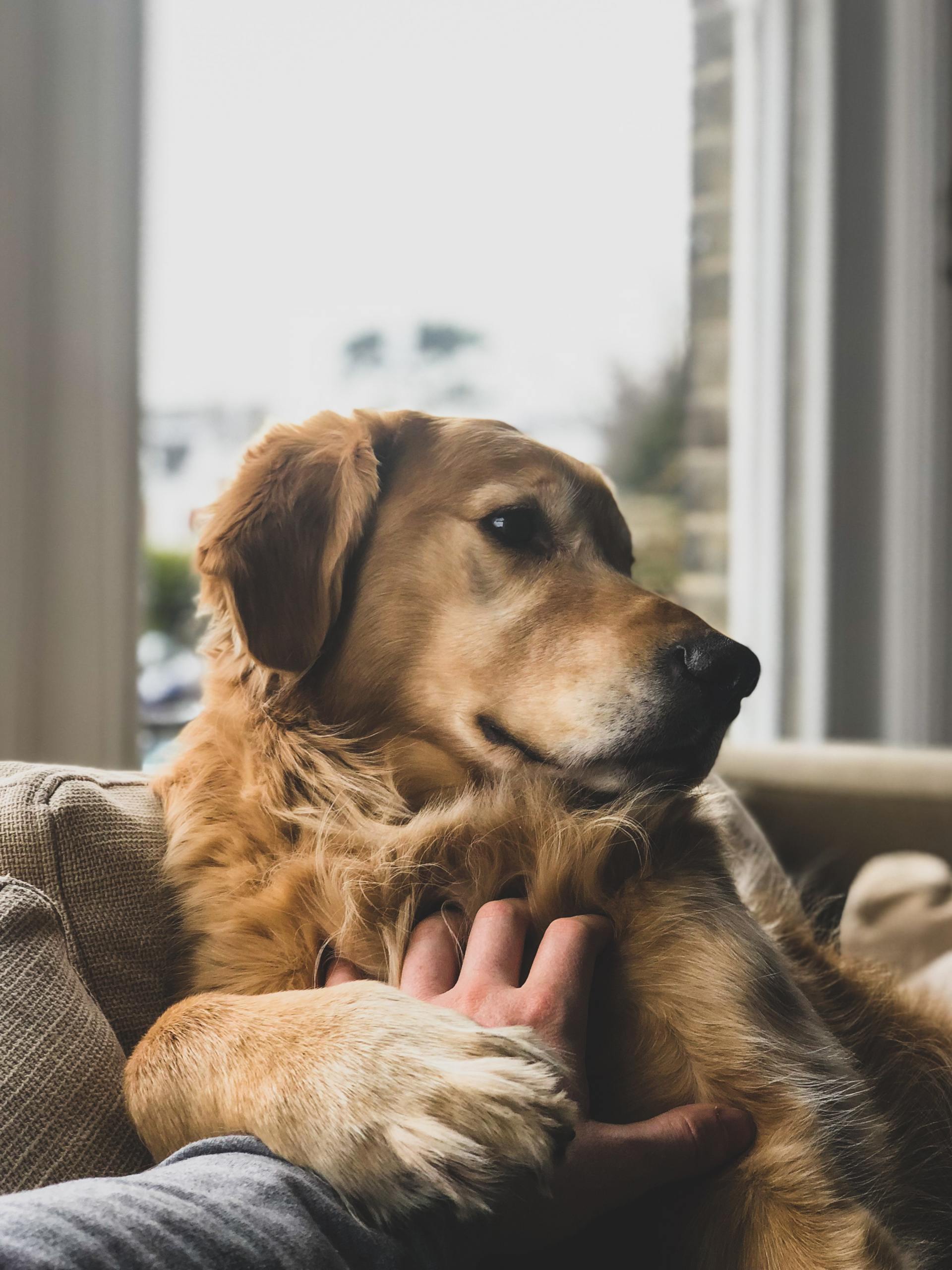
Veterinary support A Veterinary check should be your first port of call. It’s common for behavioural issues to stem from an undiagnosed illness or pain-related problems. We all know how short-tempered we can feel when we are even slightly unwell! Even though your pet may look fine, a medical professional will at least rule out these causes, and/or enable treatment. Your Vet can recommend medical interventions, and can also refer you to a registered clinical animal behaviourist. Become a behaviour ‘detective’ It’s helpful to sit and make a list. What events seem to cause anxiety? Are there social causes, such as meeting other dogs, or certain types of people (for example, young children). Check the environment for specifics too. These may be obvious, such as firework noise, or planes flying overhead. Less noticeable signs (to us humans) could be scent-related, for example of other animals nearby, or of an unusual or strong aroma such as cigarette smoke or vehicle fumes. It’s likely that there are multiple factors involved too, for example, if your dog has a history of similar behaviours that have perhaps worsened, or you may have more than one pet in the home and their interactions are not helping! What can I do? Seeking professional help is a great option, but you can take steps to help your dog in the meantime. Of course, avoid problem situations in the short term, because constantly exposing your dog to sources of stress can escalate their reactions and create further problems. In the longer term, you can gradually increase contact with problem situations but this must be planned carefully. Providing a safe, quiet space to which they can retreat is a must. This isn’t a place to shut them in, but rather somewhere where your dog can choose when they need to feel secure. Some dogs enjoy an ‘open door’ crate as a haven. Provide comfy bedding and soundproof the floor and sides if you can - old blankets are ideal for this purpose. You may want to drape a lightweight cover over the top for added feelings of safety, but see what your dog seems to prefer. Redirecting your dog onto fun activities can help, as their mood will become more positive. Toys, games in which your dog searches for hidden treats, training easy tricks, or just simple reassurance and cuddles can all help. Yes, contrary to old-fashioned advice, letting your dog seek comfort with you is absolutely fine.
